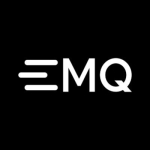What is our primary use case?
We use it as our enterprise messaging bus, not from the transformation use cases. It's mainly from the messaging use cases only. We use it for connecting to mainframes predominantly.
How has it helped my organization?
It was the main messaging bus for us for a very long time. Therefore, we have applications connecting, and even some of the modern applications are still using MQ. From a company's productivity perspective, we see a lot of benefits. It's all point-to-point connectivity. For any point-to-point messaging needs, MQ is very good.
What is most valuable?
The reliability is great. You will not see a case of a message loss in IBM MQ unless there's a queue full or there's some issue with the capacity of the queue. I haven't seen any issues with respect to the message loss. That's the main thing I like about MQ.
It's very robust.
It's a stable product.
Support is helpful and there is lots of good documentation available.
The solution can potentially scale.
What needs improvement?
While there is support for API, it's not like the modern API capabilities. If you want to automate the creation of queues and topics, IBM provides command-line utilities. It does provide API capability; it's just not that complete.
They should make CI/CD available. There is no CI/CD support from the product. Maybe MQ should think about the modern way to handle deep-based development.
For how long have I used the solution?
As a user, I have about eight to nine users of experience with this solution.
What do I think about the stability of the solution?
Stability-wise, we have no problems. It's very stable.
What do I think about the scalability of the solution?
Scalability-wise, in terms of the implementations that we have currently, it's not quite scalable. The implementations that we had were more active-passive kind of implementations up until now. There are product features that came up that allow it to scale. We understand it is scalable. However, we still need to explore it. There's a new HA capability that has come from IBM, which is a cloud-native replica set way of doing it. It's possible, it's just more difficult how we have it arranged.
We have a user base of millions and maybe 50 to 100 developers working on the solution.
With MQ, we are trying to reduce usage since we have better products to support JMS. Most of the applications are Java-based applications, which have native support for JMS. We only use MQ right now for mainframe use cases. For all the other messaging use cases, we use Solace.
How are customer service and support?
Technical support is quite good. They are some of the best. They are responsive.
Since we've used IBM for a very long time, we need to rely on them less. Most issues can be dealt with by looking at the documentation, which is available online. You often do not even have to reach out to support. That said, if you do, they are great.
Which solution did I use previously and why did I switch?
We did not previously use a different solution.
How was the initial setup?
From an implementation perspective, it was hard for the features that we were using. However, recently, it has become quite easy to implement.
The setup team is a bigger team due to the size of MQ in the company, which is quite huge. We have around 200 managers and the size of the team is around 20 members and they can all assist with deployment tasks.
What about the implementation team?
The initial setup is done by our deployment team. In fact, I currently work in pipeline development for MQ, so it's easy to implement.
What was our ROI?
Returns are quite good for the amount that you pay, since, with IBM products, you see fewer bugs.
What's my experience with pricing, setup cost, and licensing?
I don't have any information related to licensing costs.
We likely have an enterprise license, based on the size of infra that we have. My understanding is it is not very expensive. However, for a new company, it may be pricier.
We get everything in a bundle. There are no extra costs involved.
Which other solutions did I evaluate?
I didn't look into other options. When I arrived at the company, MQ was already there. They've used it for even longer than I have - for maybe 15 years.
What other advice do I have?
We are customers and end-users.
We have various versions that we use, including versions 7 and 9.1. We have both cloud and on-prem deployments and mainly deal with on-premises. 95% is on-premises.
If you're looking for a guaranteed messaging platform, MQ is quite good. That said, it might be expensive for new organizations. If you're looking for a cheaper option, maybe you may need to look for other MQ open-source protocols or open-source products. You may not get the same guaranteed message delivery experience that you have with MQ. However, it might be more affordable. With MQ, from a reliability perspective, you see very few bugs. It's been running in the bank for a long time. We have very few cases where we had to reach out to IBM support. It's just too bad they do not have CI/CD capabilities.
I'd rate the solution nine out of ten.
Which deployment model are you using for this solution?
On-premises
Disclosure: My company does not have a business relationship with this vendor other than being a customer.



















